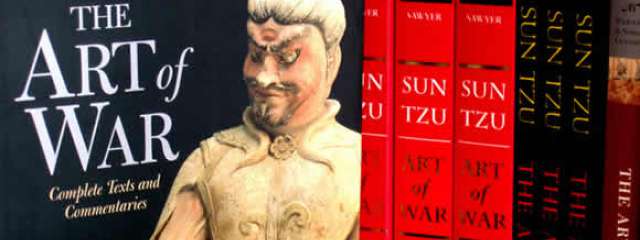
I was fortunate enough at an early stage in my career to find myself at an industry event, sitting next to a very well-known psychoanalyst. Turns out that we hit it off: I got to know him well, and likewise, he got to know and analyse me very well. As a business coach to prominent business men, he finally blurted out “Guy, I have to tell you – you don’t think strategically at all”. While I can take a blow, I must admit that this came as a surprise to me; that is, until I learned exactly what is meant by strategic thinking.
My psychoanalyst friend recommended a book to me, The Art of War, which I hunted for in the business section of the airport bookstore, eventually finding a tiny little book of quotes from Chinese warriors, some sort of advice on war, an easy, thought-provoking read, or so I thought. The book, attributed to Sun Tzu, a high-ranking military general, strategist and tactician, is composed of 13 chapters, each devoted to one particular aspect of warfare. The more I read, the more I delved into the ‘art of strategy’ the more I realised that no one is born with a strategic brain. Strategy is something that must be learned.
So what exactly is strategic planning?
Without strategic thinking, you find yourself lurching from one crisis to the next. This reactive thinking, albeit natural, can be dangerous. I’ve personally had to make a concerted effort over the last five years to not follow my ‘gut feel’, but rather to practise strategy. Having an awareness of the landscape, dynamics and people ahead of you, and taking into account all the dynamics that may influence the outcome are smart business tactics. Micro or macro, there is a reaction to everything. Call it ‘cause and effect’, but the trick in strategic planning is to determine the best reaction.
Any entrepreneur will make some wrong decisions, but it’s my job and even more so, my responsibility as the leader of my team, to think strategically. This might involve forging ahead, even with risks, or the opposite, holding back on what may appear to be perfect opportunities, knowing that strategy is often a waiting game. Some great battles were won by attack, others when the victor positioned in limbo, waiting for the perfect time to strike. Strategic thinking tells us which.
